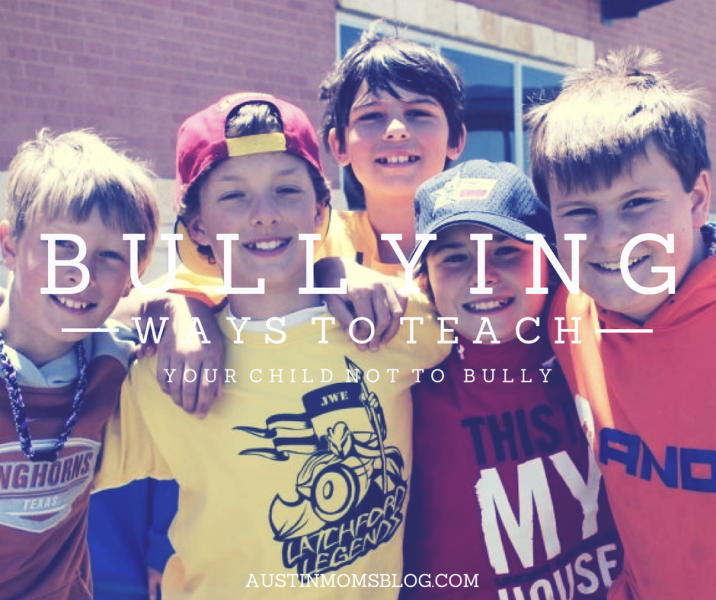Even though school is out for summer, it is ALWAYS a good time to talk to your child about the affects of bullying, what to do if they encounter a bully, and how NOT to bully.
Most of us have experienced some type of bullying throughout our life, some more than others. I remember being verbally bullied and ostracized during my elementary school years. It was not a pleasant experience. At the time, I did not know I was being bullied, I just thought these mean group of girls hated me for whatever reason.
Bullying these days is not a subject to take lightly and can happen at any age. There have been numerous headlines in the news of children, teens and adults succumbing to suicide over the emotional trauma from being bullied. There are also cases of a bully beating a person to death. Cyberbullying is very prevalent nowadays and follows the child everywhere. Harassment via texting, instant messaging, and with social media platforms like Facebook is more common than you know. Bullying is wrong, whether it is verbal, emotional, physical or cyber. As parents, it is our responsibility to teach our children not to bully.
Here are 6 ways to teach your child NOT to bully
- Teach your child to cope with their feelings in a positive healthy way: Children experience feelings just like adults do, and they often do not know how to deal with them. Talk with your child about the different feelings and emotions that one can feel, and validate those feelings when your child expresses them to you. Try to teach your child to recognize, accept and manage their feelings by prompting questions like, “what do you think could happen if you did this instead of that”? If you can get your child to problem-solve, then they have a better chance of controlling their impulses.
- Allow your child to communicate with you openly: Always have an open door policy with your child. Let them know they can come to you about anything. Children look to their parents for love, support, trust and advice, so be available to your child physically and emotionally. Some children are not open to discussing their problems readily with their parents, so ask your child questions such as how their day went, what did they talk about in lunch, and how was the bus ride home. Your child could be struggling with a conflict but too afraid to talk with you about it, so never hesitate to ask questions.
- Instill empathy and respect in your child at an early age: Read a picture book about bullying to your child. watch a movie about bullying, or role play. Discuss with your child, “how would that make you feel”? “What would you do differently”? You want your child to be able to put themselves in someone else’s shoes, to relate to the other person’s feelings. Just remember the golden rule: Do unto others as you would have them do unto you.
- Give your child the opportunity to learn social skills: Set up play dates with neighborhood kids or with friends who have kids. You can also have your child attend a Mother’s Day Out program once or twice a week, or attend church where there are nurseries or youth groups. This is a great way for your child to learn to communicate, share, trust, befriend, love, apologize, ask for help, problem solve, and learn confidence. Don’t be limiting on who your child socializes with. Have them socialize with children of different ethnicities, age, race, and religion.
- Lead by example: How do you react to conflict? Do you scream and yell, throw stuff, hit people? Children learn from the actions of their parents, so make sure you are setting a positive influence. Show your child that people can communicate with each other in a healthy way, and that you can control your emotions.
- Have expectations in your child: Every child needs boundaries and consequences for their actions. If your child is bullying another child, they need to be corrected in a positive way, such as taking away privileges. You could also ask the school to set up a face-t0-face meeting with the child that is being bullied, in which you have your child apologize and accept responsibilty. Ignoring the situation shows your child they can get away with their actions, causing them to repeat the behavior.
If your child is being bullied or has witnessed someone being bullied, please inform their school.
Has your child been affected by bullying? How did you help the situation?










